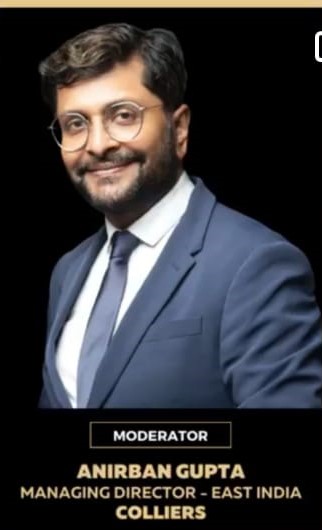Leadership, in all my years of experience, is a simple choice between 2 important questions – ‘why me?’ and ‘Is it me?’.
Decision making, especially in a crisis, is one of the biggest qualities of a successful leader. And the ability to make prompt decisions results in achieving faster results and success. The one condition leaders must keep in mind is to have deep patience and a cool head!
Looking back in retrospect at my 20+ years journey, I have penned down a few of my learnings as I turn a year older. Like they say, ‘age is not just a number, it is a journey too!

Lesson 1 – Leaders should identify the ‘Productive Hours’ of the team
I believe this to be one of the most essential criteria for a successful leader. Back in 2001, in the early days of my sales career, I saw some of my seniors loitering around the whole day at office doing almost nothing! They roamed around, took long cigarette breaks, ate lunch twice – yet had great sale figures at the end of the month! All my life I took pride in being a great observer, and this was no different. I started to keep a close eye on them. What I discovered was that some of them started their work around 5pm in the evening, worked till 9pm, converted leads into opportunities, and the opportunities into sales. They did this every day. On the other hand, some seniors were early risers. They started work at 8:30am, worked diligently and finished their day early.
The first lesson I learned after becoming a leader myself was understanding the ‘productive hours’ of my team & maximizing it intelligently, without making them feel it. Some of my team members work excellent during the morning while some prefer the evening. Some have been in work mode even on weekends and some of them have Monday blues.
I empathise and adapt to all of their work styles and get the best potency out of them, not losing my patience in the process.
Lesson 2- Leaders should practice and teach ‘self-preservation’ to the team
All know the formula, yet people fail. We all know that if we eat less and walk more, we will stay fit, but we don’t live up to these self-expectations. Why?
Because we don’t live for ourselves. We live for our boss, colleagues, teammates, etc. What will the boss think if I do this? What will my teammates think of me if I say this? We bury our ideas and restrain ourselves while trying to be perfect for our co-workers.
This, I believe, is a ‘selfish’ existence. I know that our society, system, education and families have taught us that this is the best way, but this mindset has to be changed – by the leader and the teammates. We should all learn to live and work for ourselves and our organization. This power of expression & freedom is what I call ‘self- preservation’, and it can give birth to more leaders who have the ability to build great teams.
Lesson 3 – Identify talent & believe in them more than yourself
To put this lesson into perspective, let me narrate a famous story about a major in the army. There was an army major who was a trainer in tank missiles for the soldiers in their first year of service in the Indian Army. He picks up the top 10 missile shooters and trains them for 6 months. They appear for a test in front of senior leaders and gets a special certificate on successful completion. This felicitation day when certificates are distributed is a big day in the Indian Army. One year, while the major was training his team, he came across a potential young soldier who had been practicing very hard and looked promising. He seemed determined and a bright candidate in the batch. The major started to believe in the potential of the boy. On the day of the final test and certification, these 10 candidates were invited in front of a large army crowd, & the environment was looking very special. The candidates were in a queue and were invited one-by-one to sit inside the tank and shoot. Our young soldier boy was then called at no. 9 and he went inside the tank. He aims at the target, shoots, and misfires. There was a silence.
He was the first candidate to ‘fail’. He broke down in his mind.
The major called the boy again. He had the power to give a second chance to any candidate on the field. Handing over one more missile to this young soldier, he asked him to go the tank again. He goes inside, shoots, and to everyone’s disbelief, misses again! He felt devastated. He did practice hard, was good, and everyone knew it too!
The major called him to stage. The young soldier walked up, ashamed. What the major said to him, is my 3rd lesson of Leadership, which I personally follow –
He said, ‘Saab, we all misfire in life. We all are humans. Some do it once, some does twice also. You are lucky that both your misfires have happened in your practice, and not on the battlefield! This only means that no enemy will escape from you when you will fire on the battlefield!’
Believe and trust in your good talent – they will never let you down in the long run!
Lesson 4 – Commitment and Clarity
I look for clarity before committing to any assignment, but I found that when I give my commitment, I find my clarity too. It is a funny paradox, but so true for any leader.
When I sold 69 residential flats in one year alone as a sales executive in my first real estate consultancy firm back in 2003, or when my team member and I together sold 33 residential flats in just 1 month at Bengal Unitech project at Kolkata and earned a Toyota Corolla car for my firm in 2004, it was a bold decision for me to leave residential brokerage and switch to Retail & Office leasing business. I was searching that ‘clarity’ and I never got it until I actually jumped into it in 2006. I gave my commitment and found my clarity!
I repeat this with my team also. I do not believe in compartmentalization. I do believe in talent limitation of a candidate and never over-pressure the talent, but if a team member is multi-talented, I like to push them to achieve their highest potential.
Lesson 5 – Ownership
As a leader, I teach this powerful word to all my team members personally. This is the only tool that differentiates between a future leader and a future employee.
I would like to narrate a small story here.
Two government employees used to live in the same company quarters in Delhi. Every evening, after work, they would walk back home together from office, which was approx. 2 kms. They shared a lot of things during the walk and were good friends too.
They both retired in the same year and got back to their respective hometowns. Then, they happened to meet again after 7 years at a social gathering. One friend found out that while he was getting bored and ill in his retired life, his friend had become a hugely successful businessman post retirement in these 7 years!
He felt jealous. He couldn’t stop himself from walking across to his friend and asking this question.
‘Tell me something, we both did the same job, we both retired on the same day, yet you are doing so great in life and I am lost. Why it is so?’
The friend smiled & replied, ‘Let me remind you of a small incident from our office days. You remember one Christmas Eve around 2 years before our retirement, we were about to enter our quarters and I told you that I had left the light on in my cabin? You told me to forget it and enjoy the Christmas Eve party, and that we would go in on 26th December and do the needful. I did not listen to you then. I walked back again 2 kms to office, switched off the power, walked back to our quarters. Because I had a sense of ownership, which you never had!’
I always love to share this story with my team to teach them the value of ownership. This is my vision of leadership from all the years of experience that I enjoyed in my Journey so far. I hope it provides some advantageous insights and helps young leaders develop their leadership skills.















